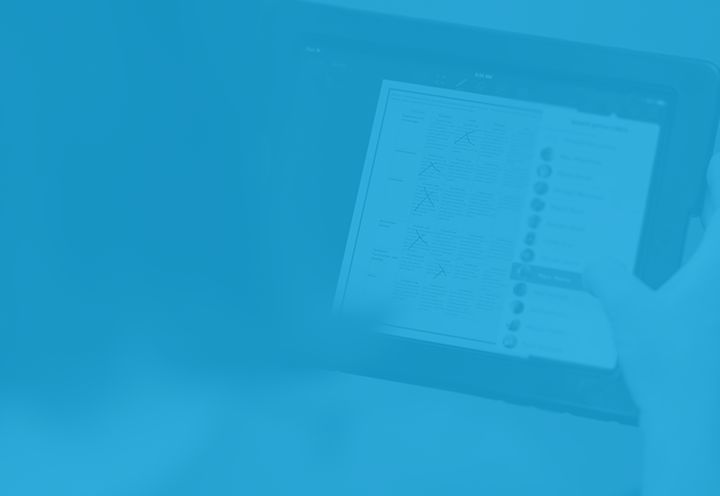Digital Citizenship is a relatively new concept, but it’s one that many tech-savvy teachers are already adopting and implementing in their classroom.
Back in March, I posted about educator and tech leader Kerry Gallagher implementing digital citizenship in her school with great success.
To dig deeper into what digital citizenship is, I contacted the co-founders behind the Digital Citizenship Summit, Marialice B.F.X. Curran and David Ryan Polgar, to talk about why they started the digital citizenship movement, what their goals are, and how they’re helping others connect and spread the word on a global scale.
Where it All Began
Marialice and David come from different backgrounds, but both recognized the need for a widespread movement around using technology and social media in safe, savvy and ethical ways.

“I started the #digcit hashtag with a grad student,” educator Marialice explains. “She had 3rd graders with a classroom Twitter account, and they knew to Google my name to see what my online content said about me. It made me wonder how this online awareness would impact them as they got older.”
Marialice also references the tragic story of Tyler Clementi, a student who was cyber-bullied to the point of taking his own life, and how this also compelled her to take action. “Why do we have to wait for our use of technology and social media to get better? Why can’t we do something now? We created #digcit on Twitter to find supporters who wanted to make a difference around the world, and it really just grew from there.”
David has a background as an attorney and tech commentator, and he was connected to Marialice through Twitter, noticing that they shared the same passion for improving how we use technology. He was drawn to the notion of digital citizenship when he saw that there were many many people already talking about it without realizing it.
“Think of a human walking around being conscious of those around them and contributing in a positive way — the online community is the same”
“A lightbulb went off where I knew all of these different groups were talking about the same thing, they were just using different words in different silos. With digital citizenship, there’s a huge opportunity to connect these groups and be the silo breaker.”
With events like the Digital Citizenship Summit, Marialice and David set out to define the philosophy behind what these different groups were reaching for.
What is Digital Citizenship?
When it comes to defining digital citizenship, there are many different components. Ultimately, Marialice and David say it comes down to educating people on how they can use technology and social media in safe, savvy and ethical ways.
“In a way, it’s kind of like a driver’s license. It’s about safety, but it’s also about digital literacy, and being ethical with our tech use.” David explains. “Think of a human walking around being conscious of those around them and contributing in a positive way — the online community is the same.”
David also explains the thought behind helping people use technology in ‘safe, savvy and ethical’ ways: “Some major areas of concern include how smartphones should or shouldn’t be used in the classroom, finding ways to improve civility online, adjusting to an internet that never forgets our posts, and being able to determine the veracity of what we read online.”
EdTech news, curated for you.
Get Showbie’s latest updates, tips and edtech roundup delivered monthly.
Marialice and David emphasize that in order for digital citizenship to be successful, it must constantly adapt along with the ever-changing world of technology. The way to achieve this is by sharing thoughts and information across groups and disciplines, keeping the conversation going. They make it clear that even healthy debate about what goes into digital citizenship is integral to its success.
“It’s easy to think you know something until you see someone else’s frame of reference and get their voice on it. We want to be a melting pot of ideas where we debate them and find a positive and practical solution. Ultimately we’re all starting with the same issue: how do we improve social media and tech use?” David says.
The Next Steps Toward Digcit Awareness
The Digital Citizenship Summit is the biggest force behind the #digcit movement, and the primary way Marialice and David hope to gain a wider audience for the initiative. At the summit, thought leaders from organizations, industries, parenting groups and even students will gather and discuss all things relating to digital citizenship.

“What really makes the Digital Citizenship Summit is that we want others to to help us create it — we are all collectively responsible, and we want to hear your voice and have you be part of this conversation” Marialice says. “We want others to be content creators.”
The 2nd annual upcoming Digital Citizenship Summit will be taking place at Twitter Headquarters in San Francisco on October 28, 2016. It will be live streamed to a global audience, so even those who can’t make it can be involved in the conversation.
Get more information (including how you can get involved and stream it live as it happens) at digcitsummit.com. You can also read the full press release for the event that contains all of the details.
Follow Marialice and David on Twitter to find out the latest information about what’s happening with Digital Citizenship. They love feedback and discussion around the topic of any kind, so feel free to get in on the #digcit conversation!


